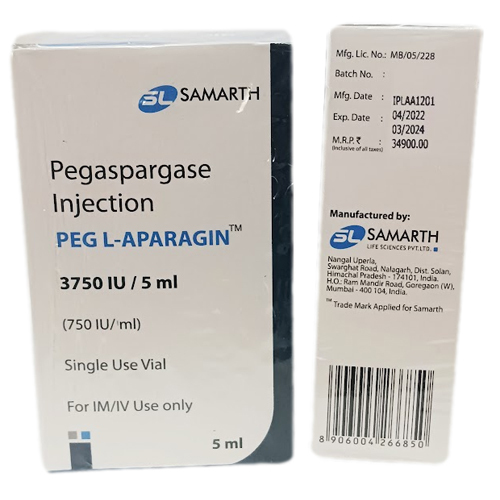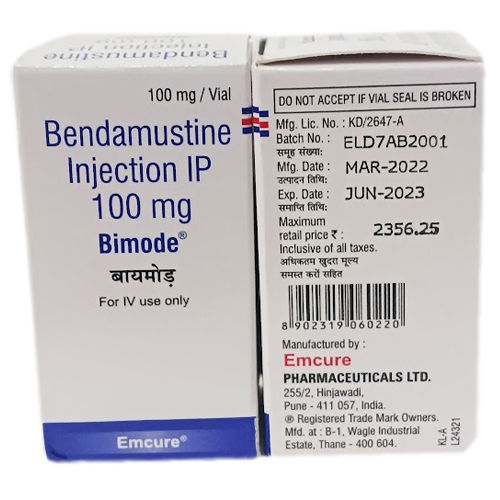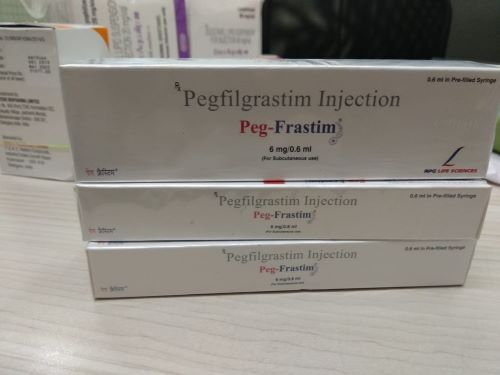3750 आईयू- 5 मिली पीईजी-एल-अपरागिन इंजेक्शन
उत्पाद विवरण:
3750 आईयू- 5 मिली पीईजी-एल-अपरागिन इंजेक्शन मूल्य और मात्रा
- 10
3750 आईयू- 5 मिली पीईजी-एल-अपरागिन इंजेक्शन व्यापार सूचना
- 5000 प्रति सप्ताह
- 7 दिन
उत्पाद वर्णन
Pegasparagase is a medication used in the treatment of acute lymphoblastic leukemia (ALL), a type of cancer affecting the white blood cells. It is also known as pegaspargase. Pegasparagase is a modified form of the enzyme L-asparaginase, which works by breaking down the amino acid asparagine in the body. Asparagine is essential for the growth and survival of leukemia cells, and by depleting its levels, pegasparagase helps to inhibit the growth of cancer cells. Here's some information about pegasparagase injection with a concentration of 3750 IU per 5 mL:
1. Indication Pegasparagase injection is indicated for the treatment of acute lymphoblastic leukemia (ALL) as part of a combination chemotherapy regimen.
2. Mechanism of Action Pegasparagase works by breaking down the amino acid asparagine in the bloodstream, which is necessary for the survival and growth of leukemia cells. By depleting asparagine levels, pegasparagase inhibits the growth of cancer cells, leading to cell death.
3. Dosage The dosage of pegasparagase injection can vary depending on factors such as the patient's weight, overall health, and treatment regimen. A common dosage is 3750 IU administered as a single intramuscular or intravenous injection. The concentration provided is typically 3750 IU per 5 mL, indicating that each milliliter of the injection solution contains 750 IU of pegasparagase.
4. Side Effects Common side effects of pegasparagase injection may include nausea, vomiting, diarrhea, abdominal pain, fatigue, allergic reactions, and changes in blood cell counts (such as low white blood cell count). Some patients may also experience liver toxicity or pancreatitis.
5. Monitoring Patients receiving pegasparagase injection should be monitored regularly by a healthcare professional for any signs of adverse reactions or complications. Blood tests may be conducted regularly to monitor blood cell counts, liver function, and other parameters.
6. Precautions and Contraindications Pegasparagase injection should be used with caution in patients with a history of pancreatitis, liver disease, or allergic reactions to L-asparaginase. It is not recommended for use in pregnant or breastfeeding women.
Pegasparagase injection is an important component of chemotherapy for the treatment of acute lymphoblastic leukemia (ALL). Its use should be guided by a healthcare professional experienced in the management of leukemia. As with any medication, it's essential to discuss the potential benefits and risks of pegasparagase injection with a healthcare provider before starting treatment.

Price: Â
- 50
- 100
- 200
- 250
- 500
- 1000+







 संपर्क करें
संपर्क करें
